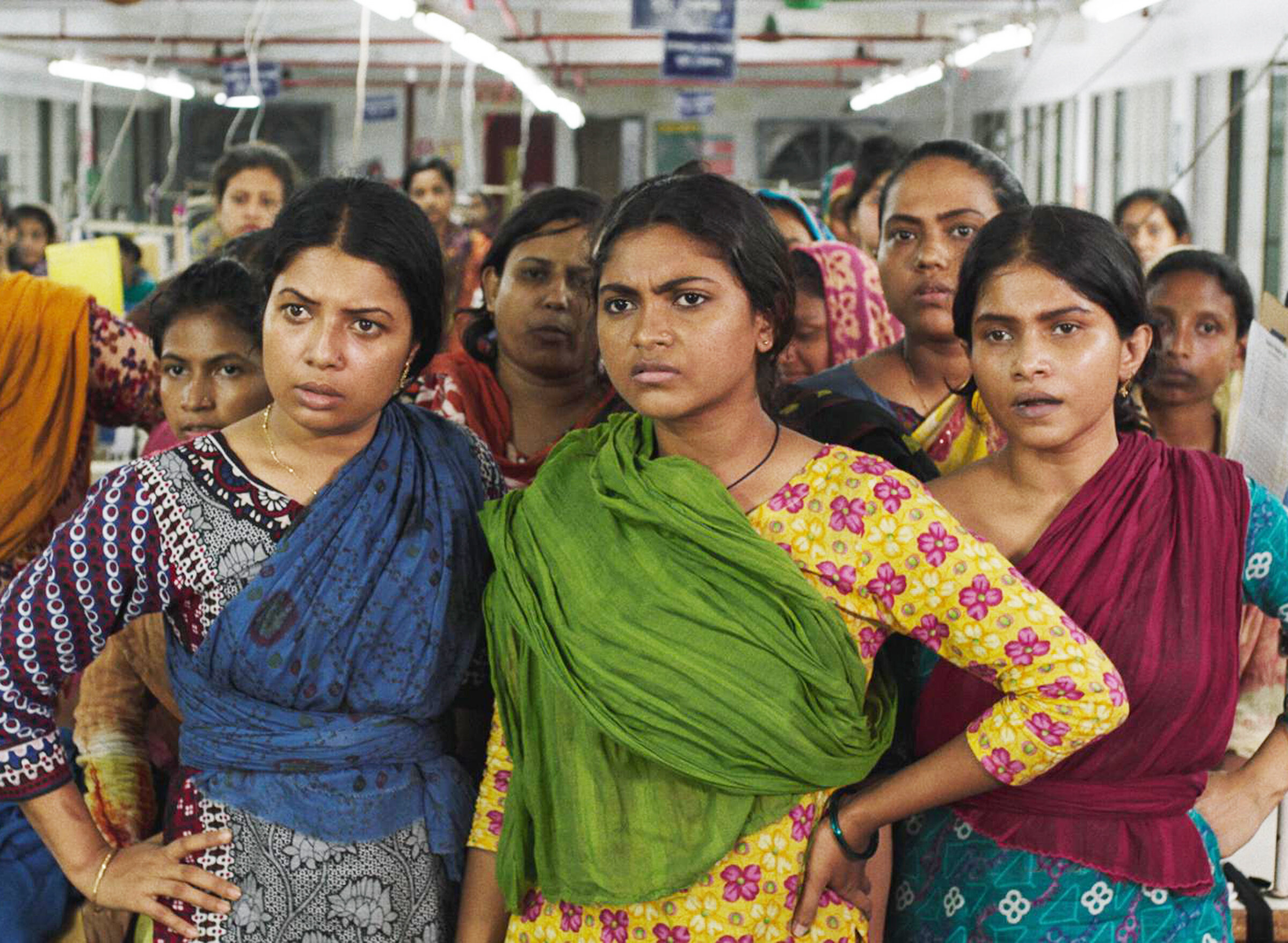HELLO JI!
A WORD (OR TWO HUNDRED) FROM THE EDITOR
A still from the 2019 drama film Made in Bangladesh.
In the movie Made In Bangladesh, activists trying to encourage garment factory workers to form a union are shown talking to them about their rights. “Women’s rights are human rights!” chants one of them.
Before the “Well, duh,” thought can formulate in my mind, I see how charged the women listening to the activist get. Their faces light up. This is a major revelation. That their rights are also human rights, something they can ask for, demand and if necessary, fight for.
These strong, independent women who support their families while working under horrendous conditions had never thought to question those conditions. The one who did was shushed by the others, for fear of reprisals. But now they have found a voice. They rally around a young, feisty woman who is willing to take risks and petition the factory owners. When that fails, they take their case to the government bodies. Women who only trod the path from home to factory and back, with the occasional trip to a movie theatre, now learn to traverse the corridors of power. It’s a little dramatic, but very powerful, nonetheless.
Show women the options available, the resources that they can access, and many will find their way, believes Deepa Mattoo, executive director of the Barbra Schlifer Commemorative Clinic.
She has done a lot of work around and written about the issues of forced marriages, honour killings and patriarchy. Partly because she has a history of working within the community and partly because of an inherent understanding of what these women’s lives can be like.
“I’m a survivor of different forms of abuse. Growing up in India, going to law school, you face it on the streets, at school, in so many ways.”
A strong proponent of empowerment, she says, “Our agency is about self-determination, about making choices. We give the women the options, we never make the decision for them.”
Mattoo has worked in poverty alleviation and says that while poverty and abuse are linked, it’s just one of the contributing factors. She quotes American lawyer and civil rights advocate Kimberle Crenshaw who developed the theory of intersectionality. When an accident takes place with cars coming from all directions, it’s hard to pinpoint where it went wrong. Abuse is something like that, poverty is a factor, but so are lack of agency, lack of economic independence, class issues, xenophobia, mental health... all overlapping. Lack of economic resources doesn’t automatically bring violence, and being rich doesn’t eliminate it, is the stark takeaway.
In the South Asian context, there’s also historical trauma, Mattoo points out. “Colonization left us thirsty to please power. That construct is deeply embedded in our DNA. People may say that was so long ago, and yes, it was, but it continues to impact the way we respond to power.”
If there are still women who are astonished to learn that their lives matter, then we truly have a long, long way to go. But Deepa Mattoo, this month’s Grant’s Desi Achiever, is confident we’ll get there. One day.
Happy Diwali! Happy Guru Nanak Jayanti!
Shagorika Easwar

